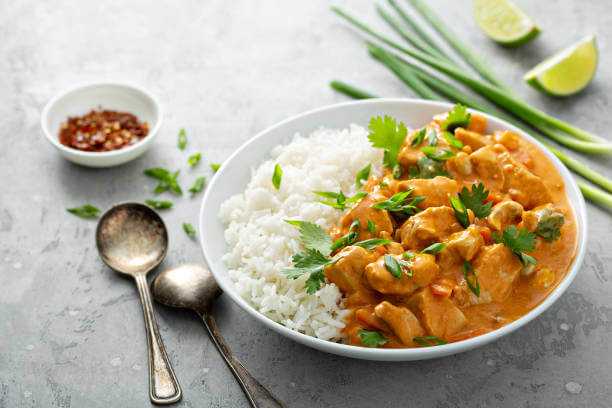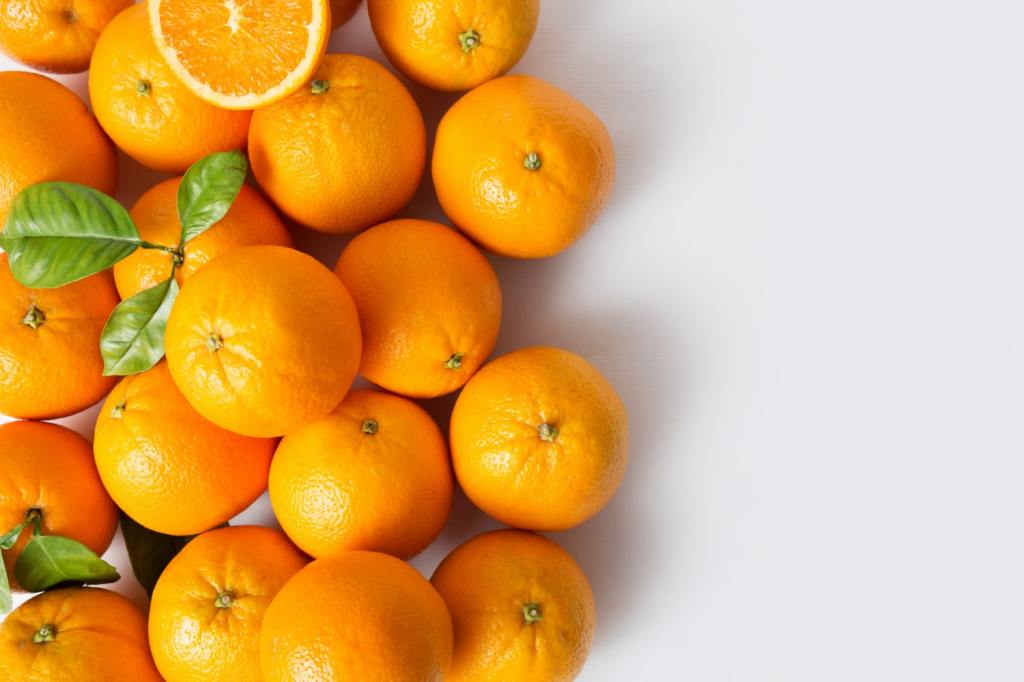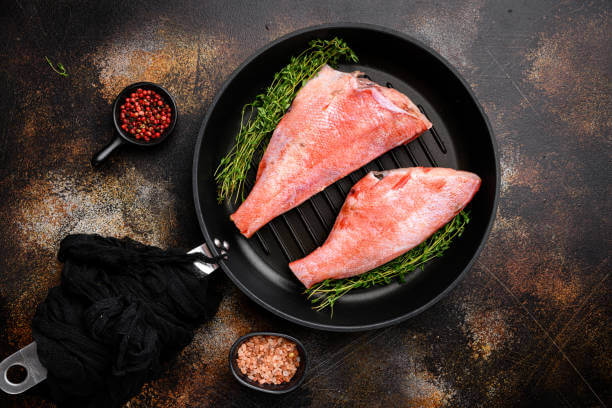
In the heart of Nigeria, an unsung hero quietly graces the plates of many, offering both gastronomic delight and a treasure trove of nutrition. Nigerian Brown Beans, often overshadowed by their flashy counterparts, emerge as a culinary gem, celebrated not just for their rich taste but for the remarkable health benefits they bring. Join us on a journey through the world of Nigerian Brown Beans, that will have you thinking the next time you want to eat beans “Should I try Nigerian beans?”
What Are Nigerian Beans?

Nigerian beans, also known as brown beans, these legumes are widely cultivated and consumed in Nigeria and other parts of West Africa. These beans are called “brown beans” due to their characteristic brown color, and they belong to the species Phaseolus vulgaris. Nigerian beans are an essential staple in the region’s cuisine and are a significant source of dietary protein.
What Other Names are Nigerian brown Beans Known By?
Nigerian brown beans are known by various names in different regions and languages across West Africa. Depending on the region, you may hear these beans referred to by different local names or dialect variations. Some common alternative names for Nigerian brown beans include:
Oloyin Beans: This name is commonly used in Yoruba-speaking regions of Nigeria, where these beans are a staple ingredient in many traditional dishes.
Ewa Oloyin: In Yoruba language, “ewa” means beans, and “oloyin” specifically refers to brown beans. This name is often used in reference to cooked brown beans or bean-based dishes.
Honey Beans: In some places, you may hear these beans referred to as “honey beans,” due to their naturally sweet flavor.
Nutritional Value of Brown Beans
Protein: Brown beans are an excellent source of plant-based protein, providing approximately 6-8 grams of protein per 100 grams when cooked.
Fiber: They are rich in dietary fiber, with about 5-7 grams per 100 grams. This high fiber content supports digestive health and helps regulate blood sugar levels.
Carbohydrates: Brown beans contain around 20-22 grams of carbohydrates per 100 grams when cooked. These carbohydrates provide a source of sustained energy.
Vitamins: Brown beans are a good source of several vitamins, including folate (a B-vitamin), which is essential for DNA synthesis and cell growth. They also contain small amounts of other B-vitamins, such as thiamine, riboflavin, and niacin.
Minerals: They are rich in minerals like iron, potassium, magnesium, and phosphorus. Iron is essential for oxygen transport in the body, while potassium plays a crucial role in maintaining blood pressure and heart health.
Antioxidants: Brown beans contain antioxidants, such as flavonoids and phenolic compounds, which help protect cells from damage by free radicals.
Low in Fat: They are relatively low in fat, with less than 1 gram of fat per 100 grams.
Calories: Brown beans provide around 100-130 calories per 100 grams when cooked, making them a nutritious and low-calorie food.
Phytonutrients: These beans contain various phytonutrients that may offer health benefits, including potential anti-inflammatory properties.
Lignans: Brown beans are a source of lignans, which are compounds associated with various health benefits, including heart health and antioxidant properties.
Potential Health Benefits of Nigerian Honey Beans

Rich Source of Protein: Honey beans are an excellent source of plant-based protein, which is essential for muscle maintenance, growth, and overall body function.
High Fiber Content: The high fiber content in honey beans supports digestive health by promoting regular bowel movements and reducing the risk of constipation.
Blood Sugar Management: The fiber and low glycemic index of honey beans help regulate blood sugar levels, making them a good choice for individuals with diabetes or those at risk of diabetes.
Heart Health: Honey beans are low in saturated fat and high in soluble fiber, which can help reduce the risk of heart disease by lowering cholesterol levels and improving blood vessel function.
Weight Management: The fiber and protein in honey beans contribute to a feeling of fullness and can aid in weight management by reducing overeating and snacking.
Rich in Vitamins and Minerals: Honey beans are a good source of essential vitamins and minerals, including folate, iron, potassium, and magnesium.
Bone Health: The magnesium and calcium content in honey beans may contribute to better bone health and the prevention of osteoporosis.
Improved Immune Function: The vitamins and antioxidants in honey beans can help support a healthy immune system and protect the body from infections.
Antioxidant Properties: Honey beans contain various antioxidants, such as flavonoids, which help protect cells from damage by free radicals.
Reduced Risk of Chronic Diseases: The consumption of beans like honey beans has been associated with a reduced risk of various chronic diseases, including certain types of cancer, due to their rich content of antioxidants and dietary fiber.
How To Cook Nigerian Beans Porridge

Nigerian beans porridge is a delicious and hearty dish made with brown beans, vegetables, and spices. Here’s a basic recipe for cooking beans :
Ingredients
- 1 cup of Nigerian brown beans (pre-soaked)
- 1 medium onion, chopped
- 2-3 cloves of garlic, minced
- 2-3 tablespoons of red palm oil (or vegetable oil as an alternative)
- 1-2 teaspoons of ground crayfish (optional)
- 1-2 teaspoons of ground pepper (or scotch bonnet peppers)
- 1-2 bouillon cubes or seasoning cubes
- 1 cup of leafy vegetables (e.g., spinach, ugwu, or kale), chopped
- Salt to taste
- Water
- Optional ingredients: smoked turkey, beef, or stockfish, if desired
Instructions
Start by sorting and rinsing the pre-soaked Nigerian beans. If you’re using meat or fish, prepare them by washing and seasoning as desired.
Place the pre-soaked beans in a large cooking pot and add enough water to cover them.
Bring the water to a boil and cook the beans for about 30-40 minutes, or until they are partially soft but not fully cooked. Drain the water and set the beans aside.
In a separate pot or deep skillet, heat the palm oil (or vegetable oil) over medium heat. Add the chopped onions ( or onion blend) and minced garlic and sauté until they become translucent.
Stir in the ground crayfish and ground pepper. Cook for a couple of minutes to release their flavors. Crumble the bouillon cubes or seasoning cubes into the pot and continue to stir.
Add the partially cooked brown beans to the pot and stir well to coat the beans with the spices and seasonings.
Pour in enough water to cover the beans. The amount of water will depend on how thick or soupy you want the porridge.
Cover the pot and let the porridge simmer over medium heat for about 15-20 minutes, stirring occasionally. If you’re using meat or fish, add them at this point.
Taste the porridge and adjust the seasoning by adding salt if necessary. Add the chopped leafy vegetables and continue to cook for an additional 5-10 minutes until the vegetables are tender and the porridge reaches your desired consistency.
Why Cook Peppers with the Beans?
Peppers, especially varieties like Scotch bonnet or habanero, are known for their intense and spicy flavor. When they are cooked with beans, they infuse the dish with their unique taste, adding a satisfying kick of heat and depth of flavor. This spicy element can make the dish more interesting and appealing to those who enjoy a bit of heat in their meals.
How Long Does it Take to Cook Nigerian Honey Beans

The cooking time for Nigerian Beans, like many other types of beans, can vary depending on various factors, including the type of beans, their age, and the cooking method. Typically, it takes about 1.5 to 2.5 hours to cook honey beans until they are tender.
Nigerian Beans Porridge Recipe Using Pressure Cooker
Want to try cooking beans with a pressure cooker? Here’s an easy-to-follow set of steps using the ingredients above:
Rinse the soaked beans and drain them. Heat the palm oil in the pressure cooker and sauté the chopped onions, minced garlic, and peppers until they become fragrant and slightly softened.
Add the drained beans to the pressure cooker and stir to combine with the sautéed ingredients.
Add the ground crayfish, cayenne pepper, and bouillon cube (if using), and stir well.
Pour in the water or vegetable broth until it covers the beans by about an inch. The exact amount of liquid can vary depending on your pressure cooker, so refer to your cooker’s instructions for guidance.
Seal the pressure cooker and set it to high pressure. Cook the beans for about 20-30 minutes. The cooking time may vary based on your pressure cooker and the age of the beans. The beans should be tender but not mushy.
After cooking, carefully release the pressure according to your pressure cooker’s instructions.
If the porridge is too thick, you can add more water to reach your desired consistency. Taste and adjust the seasoning by adding salt and more cayenne pepper if needed.
If you like, you can add chopped vegetables (spinach, kale, etc.) and cooked meat or fish to the porridge. Simmer for a few more minutes until the vegetables are tender and the protein is heated through.
What to Eat With Brown Beans
Rice: Nigerian Beans are commonly served with rice in various parts of the world. The combination of beans and rice provides a complete protein source and is often accompanied by flavorful sauces or stews.
Plantains: Fried plantain pair well with brown beans. This combination is popular in West African and Caribbean cuisines.
Yam: In West African cuisine, a common combination is brown beans served with boiled or roasted yam.
Bread: Beans can be used as a sandwich filling or spread on bread, creating a hearty and satisfying sandwich.
Meat or Fish Stew: Brown beans can be served with a meat or fish stew. This adds rich flavors and additional protein to the meal.
How To Pick Beans
Start by sorting through the brown beans to remove any debris, small stones, or damaged beans. Rinse the sorted beans in cold water, draining and repeating the process a couple of times before you cook the beans.
Where to Buy Nigerian Beans
Stores specializing in African or international foods are excellent places to find Nigerian beans. Here at our African Food Store, we sell the best quality Nigerian honey beans for you to purchase.
Conclusion
Nigerian Brown Beans are undeniably a delicious and nutritious superfood that deserves a place of honor on our plates. This humble legume not only forms the backbone of countless traditional Nigerian dishes but also offers an impressive array of health benefits.





Leave a comment